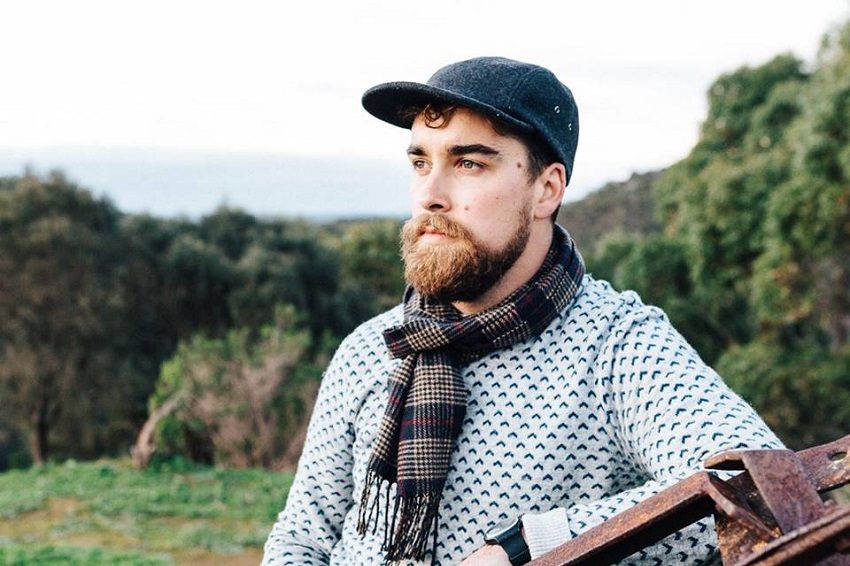Sam Wright: Taking Adelaide to Budapest and Back

While so many of Adelaide’s most popular festivals are age-old, well established affairs, there are dedicated professionals working within the festival scene, always trying to bring something new to the Adelaide audience.
One such individual is Sam Wright. For the better part of a decade Wright has been intimately involved in many of Adelaide’s festival experiences, including WOMADelaide, The Adelaide Festival of Arts and Cabaret Festival to name a few. But Wright has also run his own innovative events and festivals across town that were based on “creating new experiences for audiences that didn’t exist prior”. These include Moving Music, a set of festivals that were hosted in Adelaide’s best suited nooks and crannies with crowds walking between each, as well as Bus to Big Trees, a mysterious evening of music where participants were bussed deep into the heart of Kuitpo Forest.
 Moving Music at Hart’s Mill in 2015
Moving Music at Hart’s Mill in 2015
Wright is currently overseas, about to take part in a week-long festival training program in Budapest: Atelier for Young Festival Managers. It will be a workshop for 40 individuals from all over the world run by the Festival Academy, a training body set up by the European Festivals Association. Guided by the expertise of a series of eminent festival and arts directors, participants will exchange perspectives and experiences from their work in the diverse world of arts festivals. The Atelier’s goal is “to talk about what the purpose of a festival is in our current society,” Wright says. He is excited to take part, thanks to a grant from Arts South Australia, and is keen to make contact with so many kindred spirits from across the globe. “I’m seeking that renewed inspiration about why we do what we do and getting a broader perspective on why festivals work in other countries or why they don’t work,” he says.
 One of many interactive installations present at Moving Music
One of many interactive installations present at Moving Music
Wright is wary of why so many festivals are forced to justify their economic impact to make sure they are awarded funding. “Here in particular everything seems to be tied to the economic benefits of festivals,” Wright says, noting that in countries like France, many festivals are run at a loss purely with the goal of developing new and inspiring work. In Australia, during trying economic times, funding authorities will often justify an event’s funding by the economic benefit derived from it. Wright recognises that it’s a “super tricky question” for us to ponder the idea of funding art solely for art’s sake, which can seem a foreign concept to some. “I think Europe has a really inspiring focus around development of new work,” Wright says. “They’re willing to put some risky stuff out there, but I also think the audience there is more willing to put themselves out there as well.” On the other side of the coin, Wright recognises the privilege of working in Adelaide’s bustling festival scene. Having worked in many of Adelaide’s best festivals in multiple roles he says that there are few better places in the world to practice his craft. “Without leaving the city you can work on countless festivals. People develop in a really great way in Adelaide, just because there is so much rich opportunity for experience here.”
 Bus to Big Trees in Kuipto Forest, 2014
Bus to Big Trees in Kuipto Forest, 2014
Indeed, Wright is not the only person from Adelaide heading to the Atelier in Budapest. Becci Love, who ran the multi-purpose community art space The Reading Room, and Halley Buckham, who is currently working with Circus Oz, will also be attending the event. Evidently, Wright is not wrong about Adelaide’s capacity for raising compelling arts professionals. With the Atelier set to cover a wide range of festival formats, and how they are run all over the world, the discussions will be a grand melting pot of ideas and perspectives. Participants will each have to write a sort of manifesto about their own artistic visions for a festival they hope to run. “We have to read everyone’s, so that’s 40 essays to read,” Wright says. “I’m not going to steal anyone’s ideas! But I’m sure there will be some incredible inspiration there.” themakereadylab.com Photos: Andre Castellucci